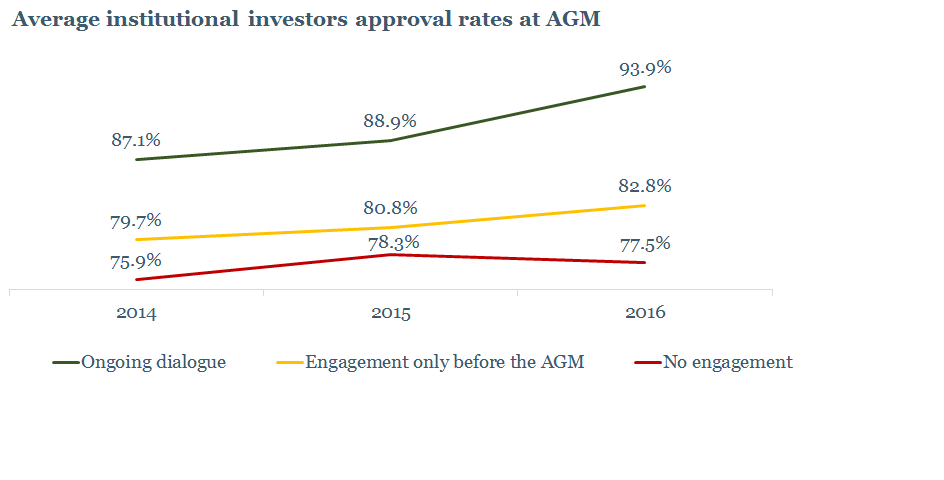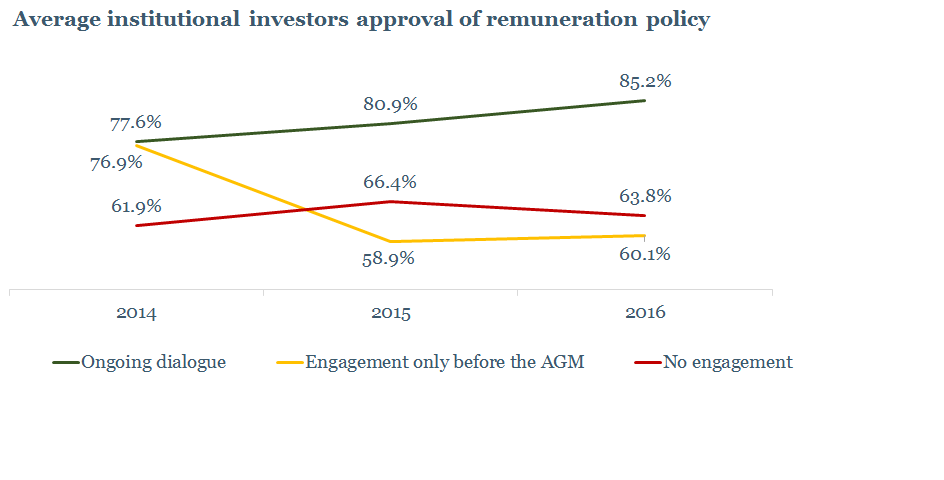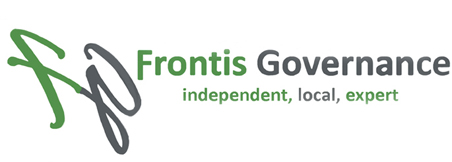The article “Shareholder engagement and co-creation. An analysis of a sample of listed companies” was published on the latest issue of the magazine Sinergie – Italian Journal of Management. The article was written by Prof. Salvatore Esposito De Falco (la Sapienza University of Rome), Nicola Cucari (University of Salerno) and Sergio Carbonara (Frontis Governance), and it was awarded as “Bet Paper Award” at the 2017 Sinergie-SIMA Conference.
Through an analysis of the vote of institutional investors at AGMs held in the 2014-2016 period, the analysis proves that companies maintaining an ongoing dialogue with the shareholders and their proxy advisors (and not just in the few weeks preceding the AGM) create the best conditions for a shared governance.
The analysis is based on a selected sample of 42 Italian listed companies considered to be representative of the stock market’s composition (taking in particular account the market capitalization and shareholder structure) and all engagement practices. The sample was subdivided into 3 categories:
- 21 companies which did not engage with shareholders or proxy advisors in the 2014-2016 period;
- 11 companies which engaged with shareholders only in the few weeks preceding the AGM, just to explain the Agenda and to obtain a favourable vote on specific resolutions;
- 10 companies which adopted a clear engagement policy and/or communicated with shareholders and proxy advisors on an ongoing basis (usually through several meetings/calls from September/October until the release of the notice of the AGM).
The study started from the analysis of the vote of institutional investors on all the items on the Agenda, showing that companies engaging with shareholders (both on an ongoing basis and just close to the AGM) received higher and constantly increasing approval rates in the 2014-2016 period.

The analysis then focused on the vote on remuneration policies, which is generally the most controversial item and is usually the main topic of companies’ engagement before the AGM. In that case, the companies which engaged with shareholders on an ongoing basis received higher and increasing approval rates during the entire 2014-2016 period. On the other hand, the companies which concentrated their engagement activities only close to the AGM (and therefore with no possibilities to modify the remuneration policies) obtained the lowest approval rates in 2015 and 2016.

Through the analysis of actual engagement activities and voting behaviours, the study therefore demonstrates that listed companies should engage with shareholders on an ongoing basis, and not only to explain AGM proposals and remuneration policies. Only an ongoing dialogue between issuers and shareholders may effectively contribute to the alignment of interests between management and shareholders in the long term, laying the foundations for a shared governance.
